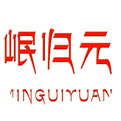
The Efficacy of Astragalus (Huang Qi)

1. Bu Qi Sheng Yang (Tonify Qi and Raise Yang)
Astragalus (Huang Qi) is sweet and warm, entering the Spleen meridian, and is a key herb for tonifying Spleen Qi. It is commonly used to treat symptoms of Spleen Qi deficiency, such as fatigue, lack of appetite, and loose stools. Due to its ability to raise Yang and lift sinking Qi, it is often used to treat conditions like prolapse and organ descent caused by Spleen deficiency. Additionally, Astragalus enters the Lung meridian and can tonify Lung Qi, making it useful for treating symptoms of Lung Qi deficiency, such as weak cough, shortness of breath, clear phlegm, and low, weak voice.

2. Gu Biao Zhi Huan (Stabilize the Exterior and Stop Sweating)
Astragalus can tonify Lung and Spleen Qi, benefiting the Wei Qi to stabilize the exterior and stop sweating. It is often used in combination with other herbs like Oysters (Mu Li) and Ephedra Root (Ma Huang Gen) to treat spontaneous sweating due to Spleen and Lung Qi deficiency.

3. Li Shui Xiao Zhong (Promote Urination and Reduce Swelling)
The Spleen governs the transformation and transportation of water and dampness; when Spleen Qi is deficient, this function is impaired. Astragalus not only tonifies the Spleen and benefits Qi but also promotes urination and reduces swelling, making it an important herb for treating edema due to Qi and Blood deficiency.

4. Kang Zhong Liu (Anti-Tumor)
The effective component of Astragalus, Astragalus polysaccharides, can enhance the efficacy and reduce the toxicity of anti-tumor drugs, thereby improving anti-cancer effects and alleviating side effects.

5. Sheng Jin Yang Xue (Generate Fluids and Nourish Blood)
Astragalus has the ability to nourish Blood and, through its Qi tonifying action, also helps in blood production. Therefore, it is often used to treat conditions of Blood deficiency and Qi and Blood dual deficiency.

6. Tiao Jie Xue Ya (Regulate Blood Pressure)
Astragalus has a bidirectional regulatory effect on blood pressure; its hypertensive effect can slightly raise and stabilize blood pressure, while its hypotensive mechanism primarily acts on peripheral blood vessels, reducing peripheral resistance through vasodilation.

7. Xing Zhi Tong Bi (Promote Circulation and Alleviate Pain)
Astragalus functions to tonify Qi and invigorate Blood, helping to alleviate pain. It is commonly used to treat Bi syndrome, sequelae of stroke, and conditions caused by Qi deficiency and Blood stasis, presenting with symptoms like numbness or hemiplegia.

8. Tiao Jie Xue Tang (Regulate Blood Sugar)
Astragalus can lower blood sugar levels induced by glucose and adrenaline, while it can also elevate blood sugar levels in cases of hypoglycemia caused by phenformin and insulin.

9. Tuo Du Pai Nong, Lian Chuang Sheng Ji (Detoxify and Promote Wound Healing)
Astragalus, with its Qi tonifying and Blood nourishing properties, can enhance righteous Qi. For ulcers that do not heal after rupture, it can help detoxify, expel pus, and promote tissue regeneration.

10. Kang Pi Lao (Anti-Fatigue)
Astragalus contains carbohydrates, folic acid, and various amino acids, which can stimulate the central nervous system, thereby enhancing energy and combating fatigue.

11. Kang Fu (Anti-Radiation)
Astragalus has anti-radiation properties and protects the hematopoietic and immune systems, promoting the differentiation and proliferation of hematopoietic stem cells.

12. Bao Gan (Liver Protection)
Astragalus can restore serum total protein and albumin levels decreased due to liver damage and can prevent the reduction of liver glycogen, promoting liver protein renewal. It helps chronic hepatitis B patients recover immune function and enhances their ability to clear or inhibit viral spread.

13. Qiang Xin (Cardiotonic)
Astragalus has a cardiotonic effect, increasing the amplitude of heart contractions and output. This effect is particularly pronounced in cases of poisoning or fatigue. Additionally, for autoimmune responses caused by viral myocarditis, Astragalus can inhibit viral myocarditis by enhancing immune function and promoting interferon production in myocardial cells.

14. Kang Jun (Antibacterial)
Astragalus exhibits inhibitory effects against dysentery, Streptococcus pneumoniae, hemolytic streptococci A, B, C, and Staphylococcus aureus, among others.

15. Zeng Qiang (Enhance Immunity)
Astragalus can counteract the effects of immunosuppressants, enhancing both humoral and cellular immunity, as well as the reticuloendothelial system and external body systems. It induces certain immune cell factors and enhances the function of natural killer cells, providing good regulation of various immune factors.

16. Fang Ai (Anti-Cancer)
Astragalus contains trace elements such as selenium, which is known to combat cancer, thus contributing to its anti-cancer properties.

14. Tiao Jie Xue Tang (Regulate Blood Sugar)
Astragalus can lower blood sugar levels induced by glucose and adrenaline, while it can also elevate blood sugar levels in cases of hypoglycemia caused by phenformin and insulin.
All images and text are sourced from the internet. If there are any copyright issues, please contact us for removal. Thank you!

